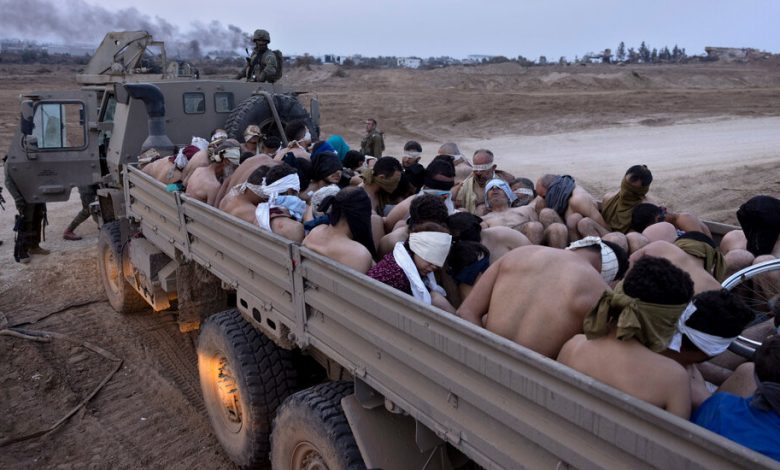What We Know About Palestinians Detained in Israel

More than 9,000 Palestinians imprisoned under Israel’s military and national security laws are being held in Israeli detention facilities, the highest figure in more than a decade, according to rights groups, who say that many of the detainees are being held without charges and have been abused while in custody.
The number of Palestinians in Israeli prisons has swelled since the Hamas-led Oct. 7 attack and Israel’s subsequent invasion of Gaza. In Gaza, Israeli troops have arrested hundreds of people in the search for fighters, the Israeli military says, while security forces in the occupied West Bank have conducted an enormous crackdown that they say is intended to root out militants.
But rights groups say that the arrests of Palestinians are often arbitrary, that the conditions in which they are held can be inhumane and that the spike in the number of reported deaths is concerning. Israel says the imprisoned Palestinians, who include avowed senior militants convicted of brutal attacks, are treated in accordance with international standards.
The detainees are a focus of one of the war’s most watched issues: negotiations for a cease-fire in Gaza. Hamas has made the release of thousands of prisoners, many of them convicted on terrorism-related charges, a condition for a cease-fire and for the exchange of the remaining Israeli hostages in Gaza.
Who are the detainees?
According to HaMoked, an Israeli human rights group, more than 9,000 Palestinians are currently in Israeli prisons. Many were detained in the occupied West Bank, the Israeli military says, where Israeli forces have conducted large raids since Oct. 7. An unknown number of Gazans are being held in military facilities.
More than 3,500 Palestinian detainees are being held without formal charges, according to HaMoked. That practice, known as administrative detention, was in place before the war, but Israel has increased its use. Before Oct. 7, about 1,300 Palestinian administrative detainees were held in Israel, according to data provided by Israel’s prison service to HaMoked.